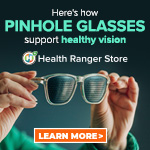Why doesn't the U.S. government track prescription drug death statistics more diligently ... since they spend so much time surveilling everything else?
Monday, February 01, 2016 by: David Gutierrez, staff writer
Tags: drug overdose, prescription painkillers, CDC

(NaturalNews) Recent revelations that the National Security Agency (NSA) spied on the heads of state of countries allied with the United States – even after President Obama promised to end such spying – have sparked new debates about U.S. surveillance culture.
Yet, in a country that is increasingly collecting myriad forms of private data about all its citizens, one form of data goes surprisingly unrecorded: When a U.S. resident dies of a drug overdose, there is no requirement that the type of drug involved be recorded. This shocking absence of data collection obscures which drugs are the most dangerous, protecting pharmaceutical industry profits, while continuing to put lives at risk.
Epidemic of prescription drug deaths
According to the Centers for Disease Control and Prevention (CDC), "the United States is in the midst of a prescription painkiller overdose epidemic." The CDC reports that while there has been no overall increase in the pain burden of the U.S. population since 1999, the number of painkiller prescriptions filled in that time has quadrupled, leading to a consequent increase in addiction and abuse. The situation is so dire, that 44 people die each day from prescription painkiller overdoses.A large part of the problem, the CDC says, is that opioid painkillers (also known as narcotic painkillers), are increasingly being prescribed for uses other than those for which they are intended.
The drugs are only meant to be used for moderate-to-severe pain related to injury, surgery or certain specific health conditions, such as cancer.
The agency notes that benzodiazepine tranquilizers are also a common cause of overdose deaths.
CDC collects data on patients, not drugs
Ironically, the CDC does promote drug tracking as one of the most effective methods for reducing drug deaths – but it focuses on tracking prescriptions, not overdose deaths. The agency encourages states to adopt Prescription Drug Monitoring Programs (PDMPs), which, consistent with other U.S. surveillance measures, collect a wide range of information on regular people's habits in order to identify potential criminals.PDMPs are state-run electronic databases that track the prescriptions of individuals, and are automatically monitored (by computer software) for suspicious prescribing patterns that might suggest drug abuse or diversion. PDMPs also flag individuals who may be at high-risk for developing such patterns in the future.
The CDC lauds the surveillance-heavy PDMPs as "among the most promising interventions to improve painkiller prescribing, inform clinical practice, and protect patients," even while acknowledging that "findings are mixed."
But when it comes to knowing which prescription drugs contribute directly to people's deaths – data that could lead to changes in prescribing practices or even in drug regulations – the National Institute on Drug Abuse says, "The U.S. government does not track death rates for every drug."
The same document notes that the CDC "does collect information on many of the more commonly used drugs," and "has a searchable database, called CDC Wonder."
But CDC Wonder records death statistics only for certain categories of drugs, not for the individual drugs themselves. And even these categories are limited (and of questionable usefulness): narcotics and hallucinogens are tracked together; nonopioid painkillers are lumped with anti-inflammatories and fever-reducers; and anti-seizure drugs are lumped with sedatives, antipsychotics, antidepressants and anti-Parkinson's drugs. These are the only "specific" categories that the CDC supplies in its database. The other drug-related categories are "other drugs acting on the autonomic nervous system," "other and unspecified drugs" and "alcohol."
A few other drug categories are tracked, but all of these are related to medical accidents rather than to patient overdose.
So when will the government change its data collection practices? Probably not any time soon; it's much more profitable to track private citizens, than the corporate products that are killing them.
Sources for this article include:
DrugAbuse.gov
CDC.gov
CNN.com
Wonder.CDC.gov
CDC.gov
Wonder.CDC.gov
Drug overdose at FETCH.news
Get independent news alerts on natural cures, food lab tests, cannabis medicine, science, robotics, drones, privacy and more.
Take Action: Support Natural News by linking to this article from your website
Permalink to this article:
Embed article link: (copy HTML code below):
Reprinting this article:
Non-commercial use OK, cite NaturalNews.com with clickable link.
Follow Natural News on Facebook, Twitter, Google Plus, and Pinterest
- TAKE IT DOWN Act advances in Congress amid free speech concerns
- Survival 101: Dangerous places to avoid when disaster strikes
- Gardening tips: 15 Simple tricks to double your garden’s yield this season
- Hospital staffers sound alarm after 10 nurses were diagnosed with BRAIN TUMORS
- Criminal referral requests filed against Fauci and top COVID officials in seven states
- Widespread social and economic unrest: Steve Quayle issues urgent financial warning of imminent asset collapse in new interview with Mike Adams
- Analysis: The coming economic collapse, a mass uprising and Trump's three secret weapons to halt the growing revolt
- Aerosolized bioweapons? Strange “diploid biomasses” falling out of the sky in Florida captured under the microscope
- Israeli lobbyists boast of controlling US national security policy in leaked AIPAC audio
- DOJ and ATF kill Biden’s “Zero Tolerance” firearms dealer policy
- New studies ignite debate: Fluoride linked to autism and ADHD, prompting calls for policy reassessment
- “Prepare Tribe: Prepare, Protect, Provide” on BrightU: How to build a disaster-proof shelter in the middle of nowhere
- Federal appeals court authorizes DOGE access to Education, Treasury and OPM records
- Fauci is back in the limelight, and he’s busy promoting a future COVID or FLU pandemic
- Sovereign debt paradox: U.S.-China mutual holdings fuel geopolitical tensions
- Barley: A nutrient-dense ancient grain with modern benefits
- Aluminum, essential to vaccine science, also causes serious health conditions, including chronic fatigue, neurodegenerative diseases, macrophagic myofasciitis
- Shedding light on the dark side of MMR vaccines: How vaccinated individuals SPREAD MEASLES & put the vulnerable at risk
- Tulsi Gabbard leads charge against the Biden regime’s global censorship of the 'Disinformation Dozen'
- Fauci is back in the limelight, and he’s busy promoting a future COVID or FLU pandemic
- Aerosolized bioweapons? Strange “diploid biomasses” falling out of the sky in Florida captured under the microscope
- Analysis: The coming economic collapse, a mass uprising and Trump's three secret weapons to halt the growing revolt
- Widespread social and economic unrest: Steve Quayle issues urgent financial warning of imminent asset collapse in new interview with Mike Adams
- Kiss Your Genetic Privacy Good-Bye! 23andMe Gets Green Light to Sell Your Intimate Genetic Details to Anyone They Want
- Tulsi Gabbard takes aim at censorship: Justice for the ‘Disinformation Dozen’
- Mike Adams releases country western hit single: Goin’ Back in Time is Comin’ Home
- U.S. lawmakers investigate Meta over alleged China collaboration
- CLOT SHOT PLANDEMIC UNFOLDING: Fibrous, rubbery clots caused by covid injections have prion-like seeding activity
- Chemtrails unveiled: How the CIA and Big Business are manipulating the weather for profit
- How Israeli military-connected corporations are secretly controlling your online privacy
- European Court of Justice: Healthcare professionals who promoted or administered COVID-19 vaccines are CRIMINALLY LIABLE for any harm caused
- DEATH by VACCINE or face PRISON time: Canadian Freedom Convoy leaders CONVICTED for protesting forced vaccination during the Covid Plandemic
- Defunding DEADLY mRNA jabs: Government funding for mRNA technology being scrutinized and sidelined until proven "safe and effective" for real
- Federal employees whine over DOGE's new directive requiring them to do a 5-point summary of weekly accomplishments
- U.S. approves new Russian ambassador as diplomatic thaw continues
- Curcumin’s ancient healing power supercharges muscle recovery, and its effects are compounded with anti-inflammatory foods and supplements
- Newly released JFK files reveal Pentagon's role in creating Lyme disease and covid in the same lab
- Analysis: The coming economic collapse, a mass uprising and Trump's three secret weapons to halt the growing revolt
- Mike Adams releases country western hit single: Goin’ Back in Time is Comin’ Home
- Aerosolized bioweapons? Strange “diploid biomasses” falling out of the sky in Florida captured under the microscope
- Kiss Your Genetic Privacy Good-Bye! 23andMe Gets Green Light to Sell Your Intimate Genetic Details to Anyone They Want
- Dr. Mike Yeadon releases 15-minute testimony - WATCH - about genocidal intent of COVID “vaccines”
- Trump reverses course on Gaza plan, says “nobody is expelling Palestinians”
- MEDICAL BOMBSHELL: FDA admits Covid mRNA 'Vaccines' CAUSE CANCER
- European Court of Justice: Healthcare professionals who promoted or administered COVID-19 vaccines are CRIMINALLY LIABLE for any harm caused
- The Health Ranger releases “Vaccine Zombie” song and music video, using AI-animated zombies for the music video
- 5 Simple steps to boost your brainpower: How to strengthen executive function in a distracted world
- A lack of integrity in Academia: Harvard professor found GUILTY of fraudulent research to promote CRT theory
- Federal employees whine over DOGE's new directive requiring them to do a 5-point summary of weekly accomplishments
- EPA advisor admits the agency is funneling billions to climate groups ahead of Trump’s return to White House
- California's social media censorship law struck down: A victory for free speech or a threat to online safety?
- Space war brewing? Russia threatens to destroy Starlink satellites
- Survival 101: Effective EMF blocking techniques
- Rep. Nancy Mace introduces bill to ban biological males from female facilities on federal property
- Red Cross issues warning to stop blood plasma donations from vaccinated people
- Scientists confirm: GENIUS brain function can be spontaneously unleashed in humans without any apparent cause
- EPA advisor admits the agency is funneling billions to climate groups ahead of Trump’s return to White House
- HYSSOP: What research reveals about the health benefits of this ancient holy herb
- Two containers with completed ballots fall out of truck in Florida
- Newly released JFK files reveal Pentagon's role in creating Lyme disease and covid in the same lab
- Global leaders unite to clamp down on “misinformation” with UN-backed Cascais Declaration
- BREAKING: 2025 NDAA authorizes mandatory military draft of WOMEN across America… as Pentagon pursues global NUCLEAR war with both Russia and China at the same time
- Michael Yon warns of a ZIONIST TAKEOVER in Trump’s second administration
- Ozempic and Wegovy weight loss drugs are injectable LIZARD VENOM PEPTIDES that may unleash a devastating wave of organ failure… side effects align with symptoms of SNAKE BITES
- The Health Ranger releases “Vaccine Zombie” song and music video, using AI-animated zombies for the music video
- Mike Adams releases country western hit single: Goin’ Back in Time is Comin’ Home
- BOMBSHELL: DNA testing kits are a SCAM to develop ethnic-specific bioweapons
- Israeli soldiers accused of even more torture and abuse in the West Bank
- These 13 countries just signed an agreement to engineer a global FAMINE by destroying food supply
- NASA admits that climate change occurs because of changes in Earth’s solar orbit, and NOT because of SUVs and fossil fuels
- Fully vaccinated about to see “tsunami” of illness and death, warns virologist
- RFK Jr. clears key hurdle: Sen. Susan Collins backs controversial HHS nominee, signaling a new era for health policy
Science News & Studies
Medicine News and Information
Food News & Studies
Health News & Studies
Herbs News & Information
Pollution News & Studies
Cancer News & Studies
Climate News & Studies
Survival News & Information
Gear News & Information
News covering technology, stocks, hackers, and more



"Big Tech and mainstream media are constantly trying to silence the independent voices that dare to bring you the truth about toxic food ingredients, dangerous medications and the failed, fraudulent science of the profit-driven medical establishment.
Email is one of the best ways to make sure you stay informed, without the censorship of the tech giants (Google, Apple, Facebook, Twitter, YouTube, etc.). Stay informed and you'll even likely learn information that may help save your own life."
–The Health Ranger, Mike Adams












































